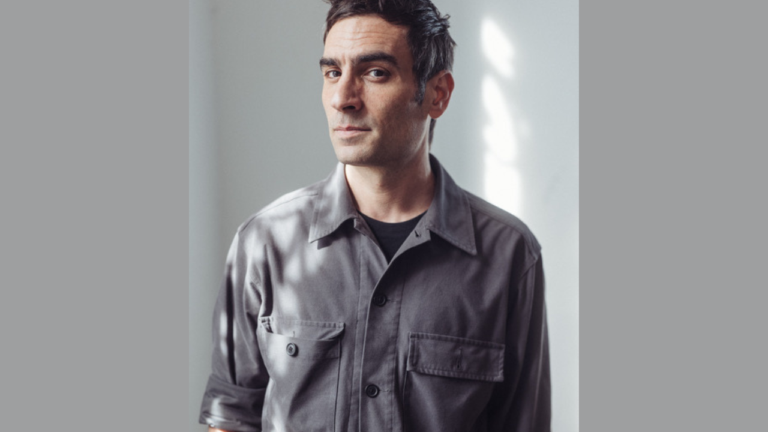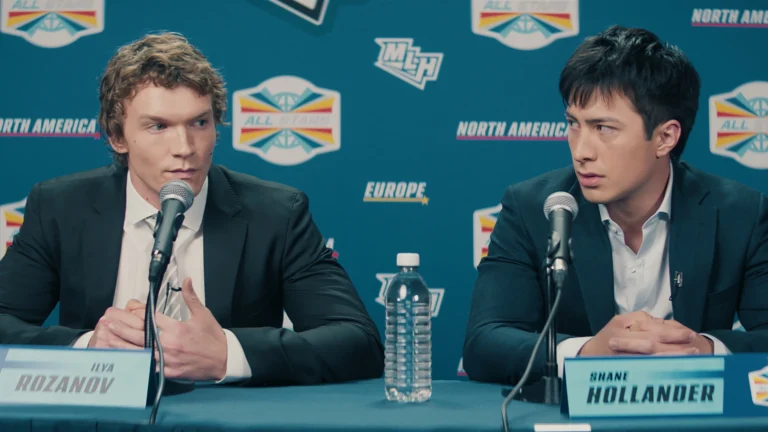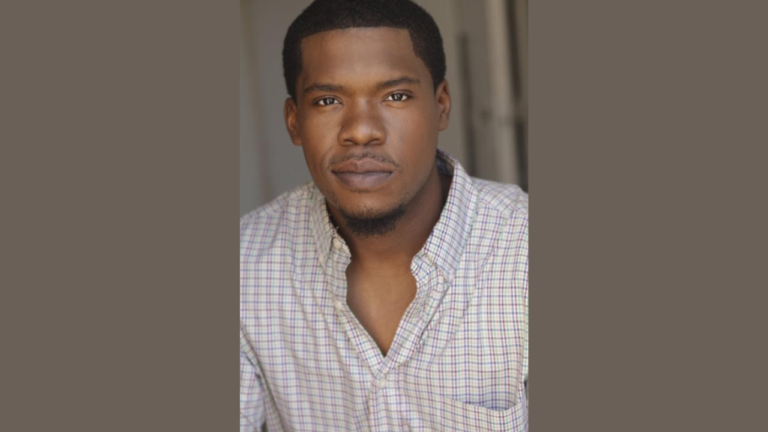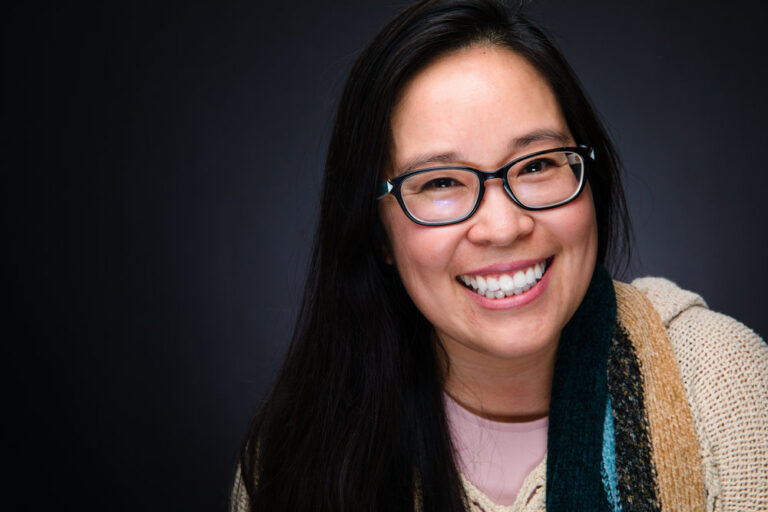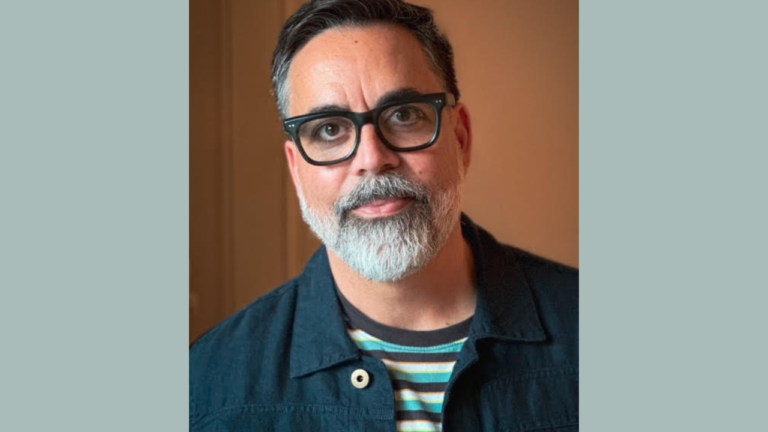Sheri Talkovsky has spent her career building the careers of others. You can say that about a fair number of agents, but Talkovsky specializes in it. It’s her primary focus, and it has led to her discovering some of the most exciting young acting talent. As a product of a BFA program, she seeks out others with similar training and helps guide them toward success.
Some of her clients include Maleah Joi Moon of Hell’s Kitchen on Broadway and the upcoming A Different World follow-up, Lovie Simone of Forever, and The Pitt’s Supriya Ganesh, all of whom are perfect examples of her work and how she develops talent.
Now a VP at the Buchwald agency, Talkovsky chatted with us about her career, her process and her love for the talent she represents.
Insights From Sheri Talkovsky
- Actors should focus on embracing and expressing their authentic selves rather than trying to appear perfect or overly polished in auditions and meetings.
- It is important to seek guidance from mentors or agents who understand the industry’s nuances and can help navigate challenges like imposter syndrome and market positioning.
- Building a career requires patience and resilience; actors should stay committed through setbacks and trust in steady personal and professional growth rather than expecting immediate success.
Thinking about joining Casting Networks? Sign up for a free trial today!
One of your specialties is finding BFA students and helping them shape their careers. What’s the origin of that path?
That’s the path that I was on for many, many years. I grew up as a musical theater-loving child, doing all the plays, going to summer camp for theater. I went to a performing arts high school, and I ended up going to school for a BFA myself.
I think coming out of school, there’s just a lot that you don’t learn. A lot that you don’t get taught. I realized that without proper representation, I was looking at going from a non-union tour, then back to a babysitting gig, then doing a regional gig, and then back to a babysitting gig. That lifestyle just didn’t feel aligned with what I wanted, and I knew I wanted to be in this industry because it’s all I’ve ever known and all I’ve ever loved.
How did the change occur when you made the switch from performing?
When I was in college, I interned at various places, including ABC Daytime. I interned at a bunch of marketing offices, casting offices, you name it. At the time, [my goal was] to be the smartest actor in the room.
When I came to the decision that lifestyle-wise, this isn’t what I want, I had to wonder, “What do I want?”
I realized that I wanted to be on the other side of the table, so to speak, but also be able to help guide people through this path that I felt I didn’t have someone to lead me through. There are just so many pitfalls when you come out of school if you don’t have the right person in charge.
How did you end up as an agent, though? I know that many casting directors used to be performers, but not as many agents, so I’m curious about the decision to go in this direction.
Casting directors can fall in love with actors, but it’s so project-specific. Their objective is to serve a project and to figure out the right people for that project. Through the course of time, they’ll learn the market, and they’ll learn actors that they love and they gravitate toward.
As an agent, I’m signing up because I believe in someone. I want to walk them through every moment. I want to be that person to say, “Okay, this is the strategy that we have to go forward.” It’s about the breadth of the life of a performer, rather than the life of a project.
Right. Whereas with casting directors I talk to, they feel exactly the opposite.
For me, it became more interesting to say, “Well, these are all the things I would have wanted when I was coming out of school. I wish I could have someone walk me through [the industry]. Show me what this looks like, demystify what this industry looks like, what this person or casting director looks like or what this experience is like. Maybe I can do that for other people. “
I think that there are so many people on this planet who are wildly talented and just don’t necessarily get the right shots and the right opportunities. For me, the idea that I can believe in somebody and help facilitate creating those opportunities for them, or provide them, was very exciting.
You mentioned the pitfalls and the obstacles that new talents run into when they’re coming in. What are some of them, and how do you help young talent navigate those issues?
There’s a lot. When you’re susceptible, you don’t know any better; it’s easy to get taken advantage of during that period. You don’t know how to advocate for yourself. You’re still learning what your voice is.
I think when you go through these BFA programs, they don’t necessarily teach you who you are in the marketplace right now. There’s a lot of discovering one’s own identity when they come out of school, as to how they fit into the broader marketplace, because they’re not taught that.
For a lot of people, I also think that there is this very deep-rooted imposter syndrome that comes into play, where they just don’t think they’re ready. If they don’t have credits under their belt, or they feel too green or too new, they don’t want to walk into a room to impress people, but rather just bring their authentic selves.
Sometimes they just need to be given permission to lean into who they are, lean into the artistry that they want to bring, and know that they’re no further or less far along the journey than somebody else. [It’s about] de-mystifying all of that and letting people embrace who their authentic selves are, letting that be something that they let shine through, rather than just trying to impress or do what they think is wanted.
How do you find your clients? Do you troll BFA programs? Do you look for people with a spark that you feel you can develop?
There are so many different components to it. Also, where I am now and how much time I have to develop my career versus when I first started are a little different. I guess the best way that I can call it across the board, whether you are an established actor or somebody fresh coming out of school, I call it an “actor crush.”
If you’re on a stage, or I see a self tape, or a manager sends me something or I see you on screen doing something that is so unique and feels super authentic to who you are. You’re just living your best life out there, or approaching something in a way I didn’t foresee; it just illuminates something.
If I feel like I would die to work with this person, I can then take that genuine feeling and go sell that.
What’s the process like? Let’s take Supriya Ganesh, who did fantastic work on The Pitt, as an example. How did you build her career?
We signed Supriya out of the ABC Discovery Showcase. I think it’s now [called] Disney [Television] Discovers. She just sparkled. The second that we saw her in that showcase, it was just like, “Yep, okay, got it.” She just had the “It Factor.”
Sometimes it’s being able to encourage somebody to keep going through really tough years, because we started to work together through a pandemic, then two actor strikes and had a lot of close calls where I think there was a lot of traction.
The Pitt for Supriya was just one of those things that was a total kismet moment. She took the MCAT and was tutoring (she loves science), and as soon as we saw this, we’re like, “There’s just no way that this isn’t Supriya, where she’s going to be able to flex all these beautiful muscles, but then fuse this with her complete cerebral side.”
It was something that we decided to chase all the way through for her, but building her to that point, so much of it is her personal growth and her journey. I think it’s always being that steady hand to lean on through those highs and lows, to encourage people to keep going; because sometimes it’s enticing to want to [throw in the] towel, or to get burned by a close call or to not feel valid until you have a booking or something to say, “Hey, you’ve made it.”
It sounds like agenting is only part of your job. It’s also part therapist, part big big sister or mother, part shoulder to cry on, all of those things, in a way that I think a lot of agents aren’t.
One hundred percent. There are different styles of being an agent. I’m day in and day out, in my office, pitching, doing all the agent responsibilities.
There’s also an element of keeping that list tight, not taking on anybody that I’m not super all in on, because I do want to be able to have those conversations and be able to talk to my clients and validate their experiences and prepare them for certain things. It’s having that level of detail.
I speak “actor” because I was one, so I feel like I can break information down to a performer, or understand the vulnerabilities of a performer, and understand how much time you need to prepare something. What it means to find your way in, how to connect with the material and get that granular with it. It allows me to be more managerial, a little bit more involved in the process, rather than just cranking it through and being transactional.
I’m not a transactional type of agent. Sometimes clients don’t need that. It’s not a one-size-fits-all thing. When you’re first starting with someone, it’s very different than when somebody is on their third series as a regular and they’re a seasoned pro and don’t need that kind of hand-holding.
There’s something so all-encompassing about what you do. It must get exhausting. How do you manage?
I am very intentional with who I take on at this point. I have to feel it in my bones. Sometimes it takes a long time for someone to hit, so as long as I believe and I see that progress is happening, I want to ride those journeys through. I want people to have a fair shot at it.
I’m now a VP at Buchwald, so I have that going on, too. I’m also a mom, so I have to be very, very, very, very, very, very diligent with how I structure my time. It is exhausting, and I would lie to you if I said that I wasn’t ever overwhelmed. Sometimes it is overwhelming, but I have to operate from that deliberate intention to ensure that everybody is getting the service and the time they need.
I want to be able to go to bed at night, going, “You know what? I’m not going to let these people down. I’m doing what I need to do.”
What would you like to share with me about your work that I haven’t asked about?
How much we care. I think that people sometimes assume that agents are just these robotic creatures, trying to wheel and deal and just make money and whatnot. However, there are a lot of agents out there who invest in the people that they represent, and believe in them and truly, deeply care about their clients.
To me, those are the best agents because when they get on the phone and they talk about their clients, it’s coming from such a place of genuine passion. I don’t think that there’s a better way to sell than when you believe in what you’re selling. That’s where I get my joy.
There’s nothing better to me than being able to tell somebody that they can pay off their college debt. There’s no better conversation than me saying, “Hey, you’ve booked your first job.” Just being able to give somebody the validation of, “Hey, you’re on the right track.” Hearing how they receive that is part of why I do what I do.
Many young actors are featured on this site. What piece of advice would you give them, assuming they can’t get you as an agent?
You don’t need to be perfect. You just need to be human. When you come out of those schools, you want to present perfectly. You want to do everything right. You want to impress everybody. I think that the job of an actor is to connect.
That’s the beauty of the art form, that it’s a connection-based thing. All you need to do is walk into rooms and figure out how to connect to people from a very organic place. Sometimes that’s going to lead in an amazing direction.
Final Takeaways
Sheri Talkovsky’s journey from performer to agent is rooted in her deep understanding of the challenges actors face coming out of school. She focuses on nurturing talent, especially BFA graduates, by offering guidance that goes beyond traditional representation. Her approach blends career strategy with personal support, helping actors navigate the unpredictable nature of the industry.
- Sheri specializes in discovering and developing actors with strong BFA training, guiding them through the early pitfalls of their careers.
- She believes in signing clients she truly believes in and supporting them through both career highs and lows with a hands-on, personalized approach.
- Talkovsky emphasizes the importance of authenticity over perfection, encouraging actors to connect genuinely rather than try to impress.
- Agents should act as mentors and advocates, helping actors find their unique place in the marketplace while combating imposter syndrome.
- Building a sustainable acting career requires patience, resilience, and a supportive agent who is invested in the actor’s long-term journey.
You may also like:

